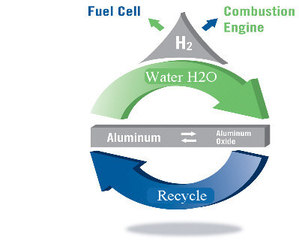Sen. Obama has couched his energy policy solely in terms of energy independence, specifically "independence from MidEast oil." Since a lot of our oil comes from outside the Middle East (Nigeria, Venezuela and Mexico are all major suppliers) this makes his10 year goals truly modest.
More important, Obama is not committed in his rhetoric to really fighting hydrocarbons. He and his running mate, Joe Biden, talk at length about "clean coal," which is a sop to Appalachian coal producers, not a working reality. They talk about "clean ethanol," but ethanol is not clean, nor is it really green. Even cellulosic ethanol systems, using non-food crops as feedstocks, are years away from coming onstream. Heck they’re blind enough to support natural gas and offshore drilling, which is a sucker’s game because it maintains our dependence on foreign suppliers, keeping their game going longer.
Then there is nuclear. Forget about the arguments over its efficacy. It is undisputed fact that a nuclear plant is most dangerous in its early years of service and its later years of service. Nuclear plants take years to permit and build, even in the best circumstances. You can’t get much lift from this in the near term, and the danger from these new plants will be at a maximum just as existing plants enter their most dangerous phase of life.
When it comes to The War Against Oil, Sen. Obama is very much a conservative.
I am not the only disappointed Democrat here. Al Gore is another one. Gore
is keeping his mouth shut now knowing that he will get a better hearing
from an Obama Administration than one headed by John McCain and Sarah
"drill baby drill" Palin.
So am I.
But if the election goes well there has to be a reckoning. Priorities have to be set. Here are mine:
- Cut demand by pre-paying for savings in the tax system. If
someone is to eventually save $1 million through some investment, in
other words, we can create incentives for that investment which make
sense. - Make certain the price of solar, wind and hydrocarbon power are equivalent. The easiest way to do that is with a price floor for all energy.
- Start building the Enter-Net. An electrical utility
network that can buy power as well as sell it, and that delivers power
from remote plants with the least possible loss, is essential. We can
save excess power in the form of hydrogen. But re-engineering our
utility network so individuals can participate in the market is
essential to the long-term future.
We can, within four years, take major strides toward reducing our use
of fossil fuels, toward jump-starting the wind, solar, and geothermal
markets, and toward making our electrical system more robust, able
to buy as well as sell power, and to withstand outages
through the mass use of fuel cells and locally-stored hydrogen.













My English class has been reading about this very issue for a few weeks, and I’ll share your thoughts with them. Thanks! 🙂
Ami
My English class has been reading about this very issue for a few weeks, and I’ll share your thoughts with them. Thanks! 🙂
Ami
Unfortunately, the economic collapse has squashed any chance of setting price floors. It would be political suicide to suggest people pay more than they have to for gas. There’s too much sentiment tied up in the issue. Kind of like you and your unreasonable fear of nuclear. The situation is yet another way in which the administration’s bumbling regime has inadvertently benefited Big Oil (almost makes you wonder if it was really inadvertent).
Unfortunately, the economic collapse has squashed any chance of setting price floors. It would be political suicide to suggest people pay more than they have to for gas. There’s too much sentiment tied up in the issue. Kind of like you and your unreasonable fear of nuclear. The situation is yet another way in which the administration’s bumbling regime has inadvertently benefited Big Oil (almost makes you wonder if it was really inadvertent).